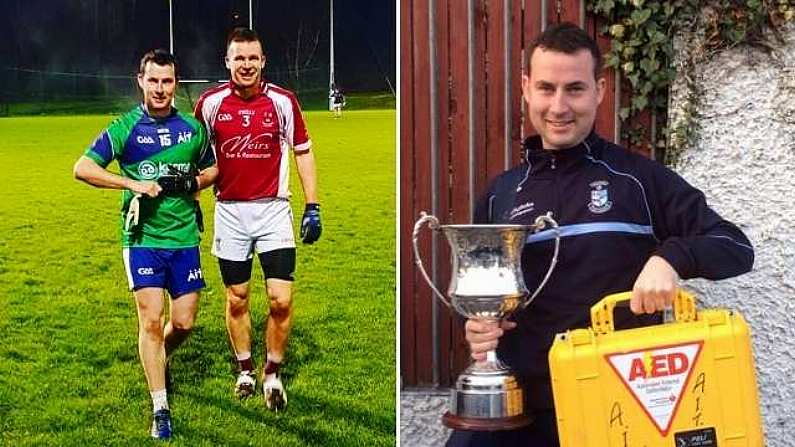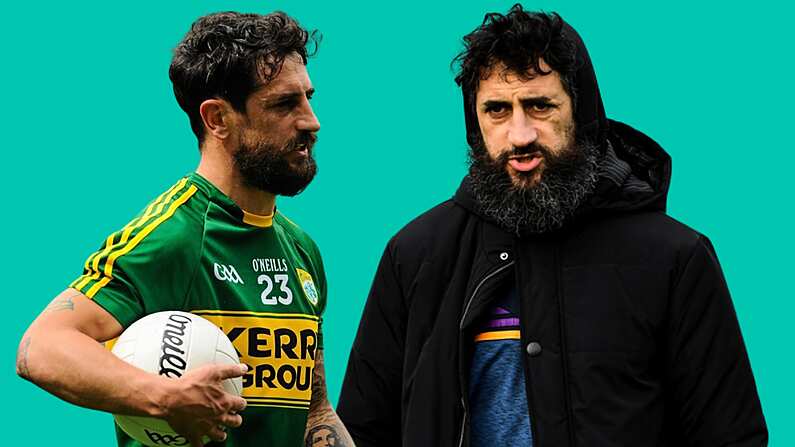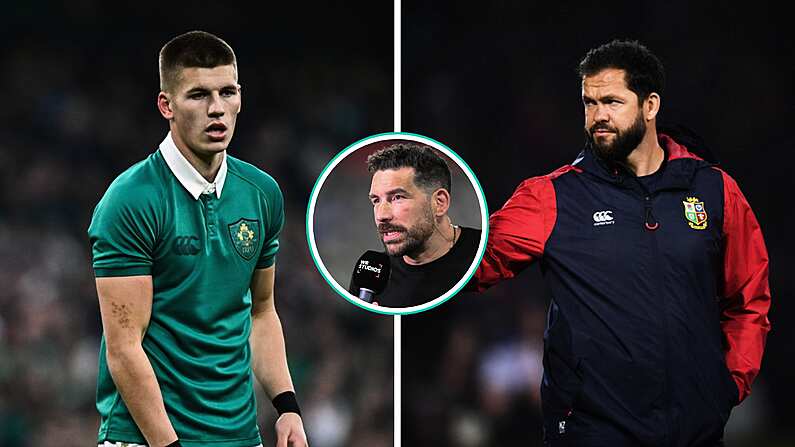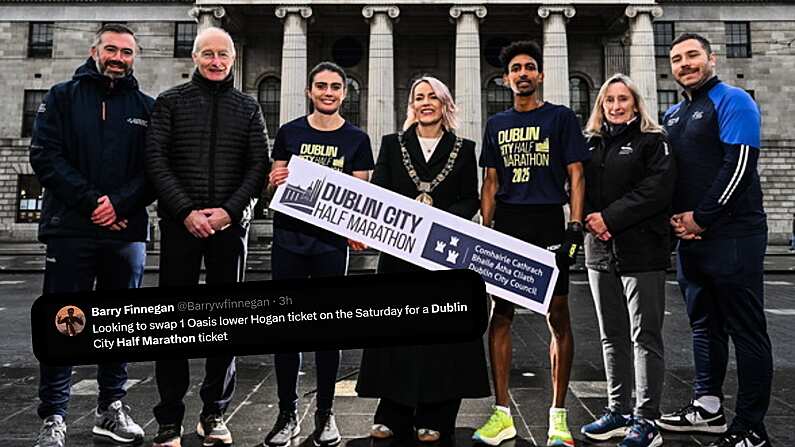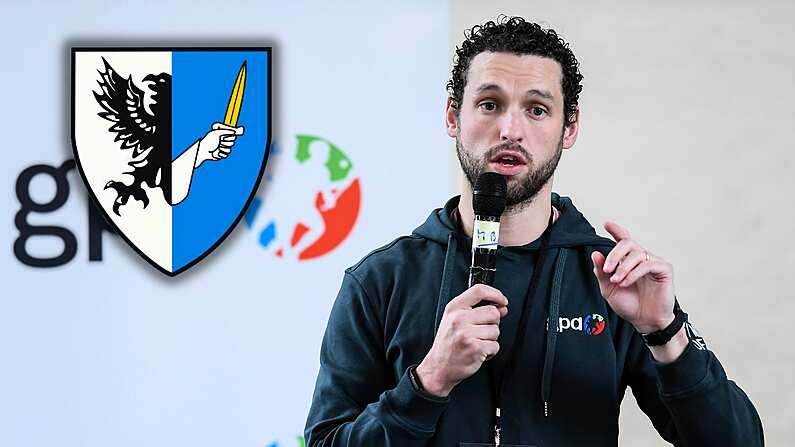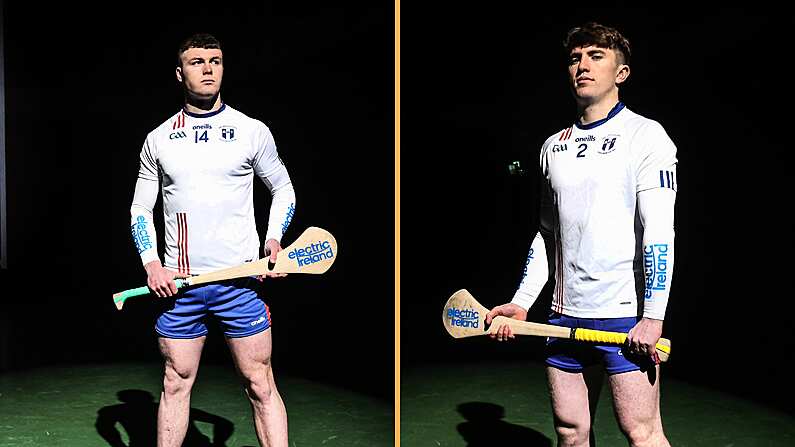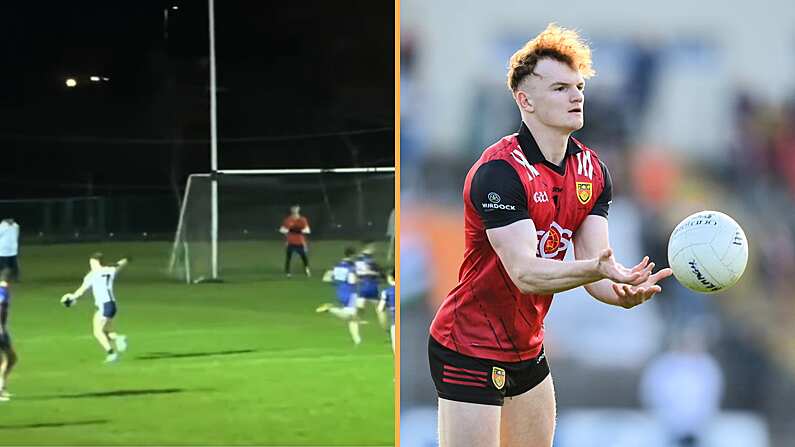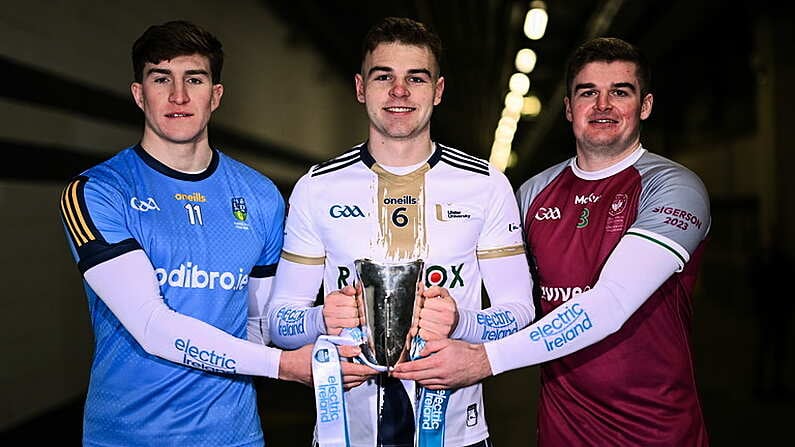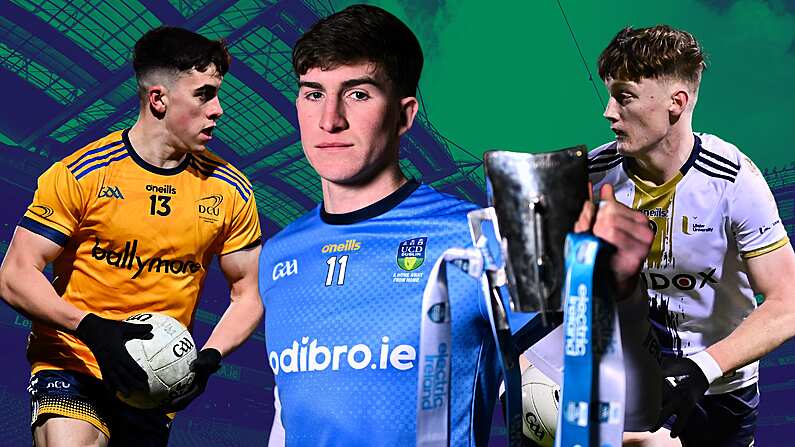"I get asked some very odd questions," says Cathal Joyce.
"No, I don't look at life differently. No, there was no white light.
"That would always be the the first question anybody that meets me brings up: 'Do I look at life differently?' When I say no, they're gobsmacked."
They ask because it is the commonplace question to ask someone who nearly died. On September 13th, 2015, Joyce - then a perfectly healthy looking 25-year-old - suffered a cardiac arrest before Athlone's Westmeath Intermediate Football Championship semi-final against Rosemount.
Today - five years to the day - he togs out for Athlone in their senior semi-final against Tyrrellspass. Now converted to standing between the sticks, he is the back-up goalkeeper.
"There a lot of memories in there and stuff, experiences from five years ago, just to overcome them would be great," Joyce tells Balls.
"Back in Cusack Park on the same day, for a semi-final again but a senior level this time, it kind of just crowns it off a bit better for me."
Joyce was warming up for that game against Rosemount when his coordination began to fail. He started dropping the football and kicking it astray. Feeling dizzy, he asked a teammate to help him to the dugout.
My brother was the physio for Athlone. He asked me what was wrong with me. My vision went and I collapsed on the ground.
I received three rounds of CPR and one shock off the defibrillator.
He was taken to the nearby Mullingar Hospital and later diagnosed with hypertrophic cardiomyopathy, a disease which causes the heart muscle to become abnormally thick.
He had an implantable cardioverter-defibrillator (ICD) placed under his left collarbone. It's a small battery powered device which monitors his heartbeat for irregularities. If there is an irregularity, the ICD can deliver an electric shock to correct the rhythm. "It's never been used and hopefully it'll never have to," he says.
The initial medical conclusion was that Joyce's competitive sporting career was over but he was determined to prove that opinion wrong. A month after the cardiac arrest, out for a walk with friends, he told them he'd be back playing football before he finished college.
"They were looking at me and saying, 'Ah, will you stop and relax'," Joyce says.
"I was told I'd never played sports again; that the most I'd do was a bit of walking and stuff.
"I didn't want to finish on that note. I wanted to finish on my own terms.
"It was like I had to start from the very, very beginning. What I was mostly able for was walking to the neighbour's house and back, and I was trying to build up from there, trying to get to the second house the next day, the third, and hopefully get to the end of the road by the end of the week.
"You're dealing with a lad of 25 that's at sport all his life. I was never actually told, 'We'll take it step by step and see can we gradually get you back into doing something where you're comfortable'.
"I was always told all of the things I couldn't do. I went to an appointment a few months after and I said, 'Will you do me a favor? Tell me the things I can do'.
"I'm associated with the Cardiac Risk in the Young (CRY) Unit in Tallaght. That's where I'm with a cardiologist, Dr Deirdre Ward.
"I went up to her for full NCT, basically all the tests under the sun, I wasn't just in and out.
"She couldn't see why I wasn't able to go back playing at a level where I was happy, not running up and down the field at a hundred miles an hour, just tipping around. If you don't feel good, then stop. Listen to your body like. I was comfortable. If I wasn't feeling up to training or playing a match, I wouldn't go. I'd sit it out.
"This is never going to go away. It's just knowing how to live with it and carry on with it.
"It was great to have that conversation, it was like winning the lotto."
Six months after his cardiac arrest, Joyce was back on the pitch. In his first game, one which he says was "scary", he terrified the opposition defence, scoring 2-2.
The man who is alive today because there were people present who knew how to use a defibrillator and administer CPR has become an advocate for training in both. He's done talks in schools and travelled to Liverpool and Vienna to tell his story.
It is what comes after someone young surviving a cardiac arrest where Joyce believes there must to be improvements made in Ireland.
"You look at the brochure I got five years ago, 'Living With An ICD'. I laughed. I just threw it in the bin," he says.
"The book has two older people in their 80s, sitting in a park - that's the photo on the cover. They don't mind if they're told they're never going to play football again. All that's in the book is telling you what you can't do.
"I've met loads of people that have contacted me through Facebook to say, 'Look, my son, my daughter is after having a cardiac arrest. We saw your story. How did you get back?'
"It's very hard [to get support] unless you're in Dublin. There's ICD groups. All the meetings are in Dublin, but I've never seen any around the country.
"I'm no doctor but I'll just tell them whatever I did and how I overcame stuff. I think it helps them as well that they can see hope for their son or daughter, and for themselves. That you will be able to get around and live life."
Kept a clean in today's Junior Championship semi-final, including this penalty save! https://t.co/0EfBlgBgFD pic.twitter.com/diPdKbmHAc
— Athlone GAA (@AthloneGAA) September 12, 2020
Sunday's game against Tyrrellspass will be the second county semi-final of Joyce's weekend. He wore the number one jersey, and saved a penalty, for the Athlone junior side in their defeat to St Loman's on Saturday.
The reason Joyce tells people that his attitude to life hasn't changed is simple: He was always someone who tried to squeeze the most from life.
"I've changed position altogether," he says.
"We're struggling for goalkeepers around this part of the woods. I just jumped in a few times.
"I'm playing the junior away the whole time and at number two for the senior team. I can't ask for much more now, five years down the road to still be part of it.
"You're looking at GAA teams now and you have to name a panel of 25 or 26 players, to even be making that panel is great after what I've gone through.
"A new position, sure I might get a few more years out of that than I would have out the field."

